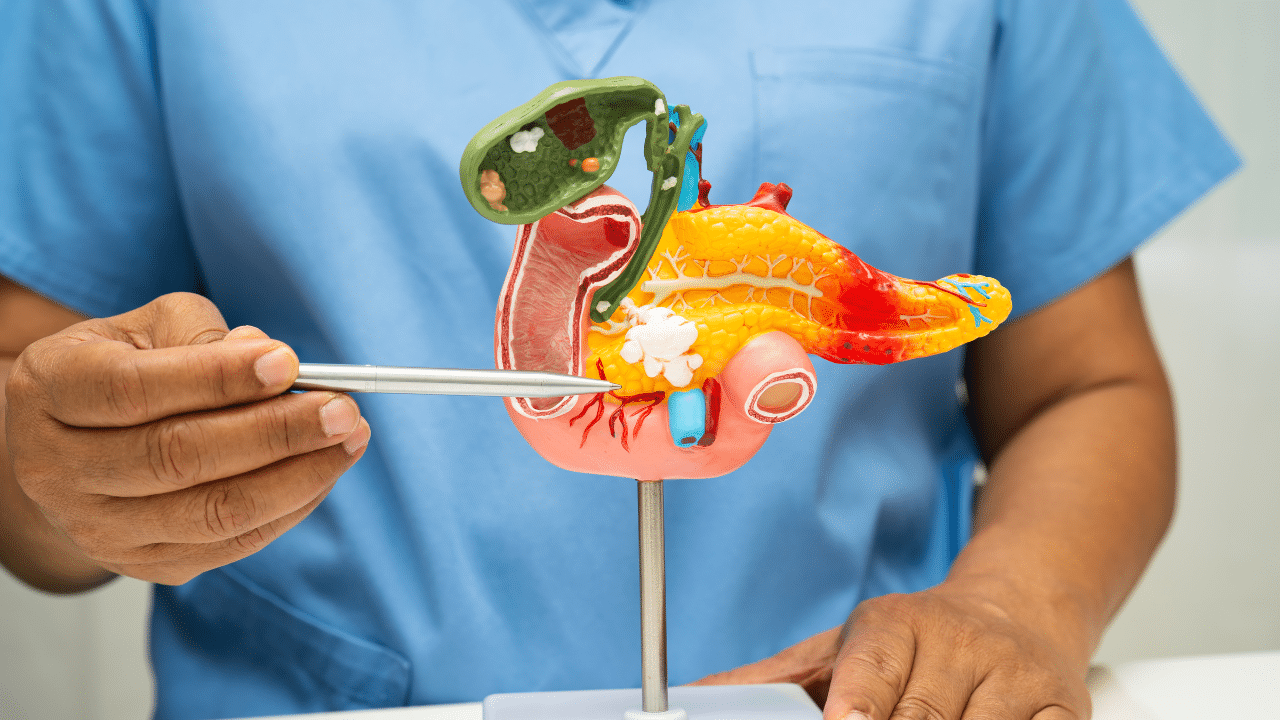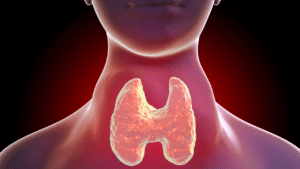Pancreatic cancer is a serious disease that occurs when cells in the pancreas grow out of control and form a tumor. The pancreas is an important organ located behind the stomach that produces enzymes for digestion and hormones to regulate blood sugar.
This blog aims to raise awareness about pancreatic cancer, including its symptoms, risk factors, diagnosis, and the crucial role of research in improving outcomes.
Symptoms of Pancreatic Cancer
Pancreatic cancer is often called a “silent disease” because early-stage tumors often don’t cause noticeable symptoms. However, as the cancer grows, it can cause a variety of symptoms, including:
- Jaundice: Yellowing of the skin and eyes, often accompanied by dark urine and pale stools. This can be an early sign if the tumor blocks the bile duct.
- Abdominal and Back Pain: Pain in the upper abdomen or middle back, which may worsen after eating or when lying down.
- Unexplained Weight Loss: Significant weight loss without trying.
- Loss of Appetite: A decreased desire to eat.
- Digestive Issues: Including nausea, vomiting, bloating, and changes in bowel habits (diarrhea or constipation).
- New-onset Diabetes: Developing diabetes suddenly, especially in older adults, can be a sign of pancreatic cancer.
Risk Factors
While the exact causes of pancreatic cancer are not fully understood, several risk factors increase the likelihood of developing the disease:
- Smoking: The most significant risk factor, accounting for about 20-30% of cases.
- Age: The risk increases with age, with most cases diagnosed in people over 65.
- Family History: Having a close relative with pancreatic cancer increases your risk.
- Diabetes: People with diabetes have a higher risk of pancreatic cancer.
- Chronic Pancreatitis: Long-term inflammation of the pancreas increases risk.
- Obesity: Being overweight or obese is linked to an increased risk.
Diagnosis
Diagnosing pancreatic cancer often involves a combination of:
- Physical exam and medical history: A doctor will review your symptoms and medical history.
- Imaging tests: CT scans, MRIs, and endoscopic ultrasounds can help visualize the pancreas and detect tumors.
- Biopsy: A tissue sample is taken from the pancreas and examined under a microscope to confirm the diagnosis.
The Importance of Research
Pancreatic cancer has one of the lowest survival rates among all cancers. This highlights the urgent need for research to:
- Improve early detection: Develop better screening methods to detect pancreatic cancer at earlier, more treatable stages.
- Develop new treatments: Explore new therapies, such as targeted therapies and immunotherapy, to improve treatment effectiveness.
- Understand the causes: Identify the underlying causes of pancreatic cancer to develop prevention strategies.
- Improve quality of life: Develop supportive care strategies to manage symptoms and improve the quality of life for patients with pancreatic cancer.
If you experience any symptoms suggestive of pancreatic cancer, consult your doctor promptly. Early detection is crucial for improving treatment outcomes.
Additional Resources:
- Pancreatic Cancer Action Network (PanCAN): www.pancan.org
- National Pancreas Foundation: www.pancreasfoundation.org
- American Cancer Society: www.cancer.org

Dr. Kre Johnson is a Board Certified Family Medicine Physician and the sole owner of Brownstone Healthcare and Aesthetics. She is the Medical Director of the City of Birmingham’s Employee Health Clinic-Brownstone BWell Birmingham. She is the Event Producer of Wifeology and the founder of Three Twenty Girls, Inc. She loves God, traveling, and all things Southern!!
Brownstone BWell: Brownstone Healthcare has partnered with the City of Birmingham to offer primary care services to the employees of the City of Birmingham for $0 copayment. This partnership is for preventative services & screenings and sick visits. We partner with your current primary care physician and our goal is to keep you out of the ER and urgent care. We do not share your information with the City of Birmingham. We uphold HIPPA and professional standards. You can visit us at our downtown location 1700 5th Ave N Birmingham, AL 35203 or Trussville: 4643 Camp Coleman Road #117 Trussville, AL 35173 205-202-5650 call for your appointment today.





